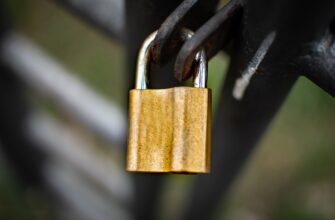Securing your crypto wallet is one of the most critical steps in protecting your digital assets. With the rise of cryptocurrency, the threat of hackers targeting wallets has become a major concern. While it’s not 100% safe to secure a crypto wallet from hackers, following best practices can significantly reduce risks. This guide explores the importance of wallet security, common vulnerabilities, and actionable steps to safeguard your funds.
### Understanding the Risks of Crypto Wallets
Crypto wallets store private keys, which are essential for accessing and transferring digital assets. If a wallet is compromised, hackers can steal your funds. Common threats include phishing attacks, malware, and social engineering. For example, a hacker might trick you into revealing your private key through a fake login page or a malicious app. Additionally, weak passwords or unsecured devices can expose your wallet to unauthorized access.
### Best Practices for Securing Your Crypto Wallet
1. **Use a Hardware Wallet**: Hardware wallets, like Ledger or Trezor, store private keys offline, making them less vulnerable to online attacks. They are considered the most secure option for long-term storage. 2. **Enable Two-Factor Authentication (2FA)**: Always activate 2FA for your wallet and exchange accounts. This adds an extra layer of security by requiring a verification code (e.g., via SMS or an authenticator app) in addition to your password. 3. **Use Strong Passwords**: Avoid common passwords like ‘123456’ or ‘password.’ Instead, create unique, complex passwords that combine letters, numbers, and symbols. 4. **Regularly Update Software**: Keep your wallet and operating system updated to patch vulnerabilities. Outdated software can be exploited by hackers. 5. **Avoid Public Wi-Fi**: Never access your wallet on unsecured networks, as they can be monitored by malicious actors. 6. **Backup Your Wallet**: Store backups of your wallet in a secure, offline location. This ensures you can recover your funds if your device is lost or stolen.
### Common Vulnerabilities in Crypto Wallets
One of the most common vulnerabilities is **phishing attacks**, where hackers mimic legitimate websites to steal login credentials. Another is **malware**, which can be spread through infected apps or emails. Additionally, **social engineering** tactics, such as fake support teams or urgent messages, can trick users into revealing private keys. For example, a hacker might send a message claiming your account is compromised, prompting you to share your password.
### How to Choose the Right Crypto Wallet
Not all wallets are created equal. When selecting a wallet, consider the following factors: 1. **Type**: Hardware wallets are ideal for long-term storage, while software wallets are better for frequent transactions. 2. **Custodial vs. Non-Custodial**: Custodial wallets (e.g., Coinbase) store your funds on the platform, while non-custodial wallets (e.g., MetaMask) give you full control. 3. **Security Features**: Look for wallets with encryption, 2FA, and cold storage options. 4. **Reputation**: Choose wallets with a proven track record of security and user reviews.
### Protecting Your Wallet from Phishing and Malware
To protect against phishing, always verify the URL of any website before entering your wallet credentials. Avoid clicking on suspicious links or downloading apps from untrusted sources. For malware, use antivirus software and scan your devices regularly. If you suspect a malware infection, immediately disconnect from the internet and run a full system scan.
### The Role of 2FA and Multi-Factor Authentication
2FA adds a critical layer of security by requiring a second form of verification. For example, after entering your password, you might receive a code on your phone or email. Multi-factor authentication (MFA) extends this by requiring three or more verification methods. This significantly reduces the risk of unauthorized access, even if your password is compromised.
### FAQ: Common Questions About Crypto Wallet Security
**Q: How often should I update my wallet software?** A: Update your wallet and operating system regularly to patch vulnerabilities. Check for updates at least once a month. **Q: What should I do if my wallet is compromised?** A: Immediately freeze your wallet, change your password, and contact your exchange or wallet provider for assistance. **Q: Is it safe to use a mobile crypto wallet?** A: Mobile wallets are generally safe if you follow security best practices, such as using a hardware wallet and enabling 2FA. **Q: Can I secure my wallet with just a password?** A: No. A password alone is not sufficient. Always combine it with 2FA and a hardware wallet for maximum security.
In conclusion, while no wallet is completely immune to hacking, taking proactive steps can greatly enhance your security. By understanding the risks and implementing best practices, you can protect your crypto assets from potential threats. Stay informed, stay vigilant, and always prioritize security in your digital transactions.








